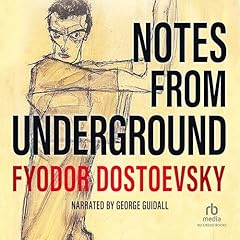
The Trial
Failed to add items
Add to Cart failed.
Add to Wish List failed.
Remove from wishlist failed.
Adding to library failed
Follow podcast failed
Unfollow podcast failed
 Prime members: New to Audible?
Prime members: New to Audible?Get 2 free audiobooks during trial.
Buy for $19.07
-
Narrated by:
-
George Guidall
-
By:
-
Franz Kafka
Thirty-year-old Josef K., a financial officer in a European city bank, is suddenly arrested. He is subjected to hearings, questioning, and visits from officials. Defending his innocence against charges that are never explained to him, he watches his life dissolve into absurdity. Whether read as an existential tale or a parable, this haunting story stands out as one of the great novels of our time.
Breon Mitchell, a professor of Germanic Studies and Comparative Literature at Indiana University, has received national awards for his literary translations. The renewed energy and power of this classic work are complemented by veteran narrator George Guidall's superb performance.
Public Domain (P)2000 Recorded BooksListeners also enjoyed...











![The Trial [Alpha DVD] Audiobook By Franz Kafka cover art](https://m.media-amazon.com/images/I/61lMGXPrdHL._SL240_.jpg)








People who viewed this also viewed...








![The Trial [Alpha DVD] Audiobook By Franz Kafka cover art](https://m.media-amazon.com/images/I/61lMGXPrdHL._SL240_.jpg)






![The Trial [Tantor Audio] Audiobook By Franz Kafka cover art](https://m.media-amazon.com/images/I/51Uya6M-A3L._SL240_.jpg)


An "important" work
Something went wrong. Please try again in a few minutes.
K's common thread is the plight of the individual on the steps of government offices. K never even learned what his crime was, and later in "The Castle", the seat of power, K learns that all entrances are closed. Klamm, the all-powerful autocrat, who controls everything that goes on, is aptly named: he doesn't say a word in 500 pages. He just pulls the strings of power. In the '50s when I read the book, I was reminded me of a disturbing movie I'd seen as a kid -- "Invaders from Mars." The all-powerful head (literally) Martian was an octopus head floating in a fish bowl. It would merely silently point one of its tentacles at one of its slaves and the individual would jump as if in a trance to fulfill the command.
Thirty years later, poet Allan Ginsberg would pick up the theme in his poem "Howl." "What sphinx of cement and aluminum bashed open their skulls and ate up their brains and imagination?" So now, as a watch California burning down, I think of the sinister power of mind control. George Carlin would pick up the theme again fifty years after that: "They don't care about you. They don't care about you. They don't care about you!" He asked, what kind of people would destroy and desecrate such a beautiful countryside and replace it with billboards supermarkets and shopping malls? As a writer I think I know: a brainwashed people.
Being Polish, I always enjoyed an old Polish poem: I'm a fly helplessly caught in a spider web of red tape and bureaucracy. I thought I was a butterfly.
By the author of Saving Gaia, Pot Stories, and Mirror Reversal.
Life Is Surreal
Something went wrong. Please try again in a few minutes.
In The Trial a bank manager Josef K (referred to as "K" throughout the book) is arrested for an unknown crime by an unnamed organization. He has no knowledge of what he's done and is never informed by his accuser, and is pretty much left to live his life normally while he tries to figure out what is going on and who to deal with to address the charges. His uncle sets him up with an elderly lawyer who is no longer at the top of his game and K, through personal investigation, has meetings with people who have experience dealing with local courts (even the "court painter"!). He gets general information but never seems to understand what his charges are or what his future holds. All the while he continues to work at the bank everyday, although he is understandably distracted and his work suffers. This is a very odd tale.
I had no ideal of Kafka's interesting writing history until I started reading this book. And things even more interesting after he passed away.
The Trial and The Castle are currently both freebies on Audible so I'll probably eventually give the latter a try as long as it remains in my audio library. The themes in his writings appeal to me - understanding what is going on is what I need to work on I guess.
Classic Confusing Goodness
Something went wrong. Please try again in a few minutes.
meh.
Something went wrong. Please try again in a few minutes.
Any additional comments?
The last hour or so of this version contains discussion of previous translations of The Trial and also a few sections that never made it into the books.Just a heads up
Something went wrong. Please try again in a few minutes.


